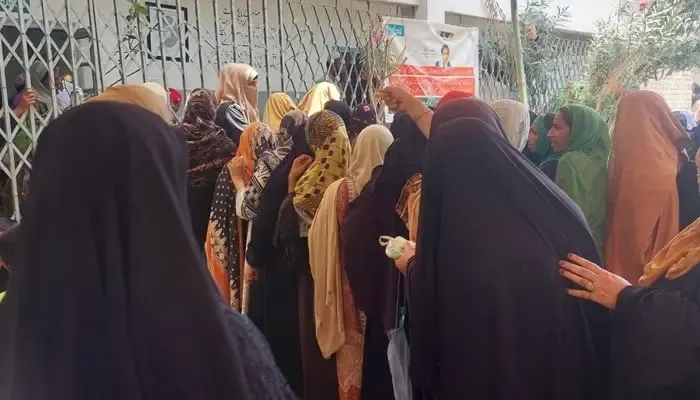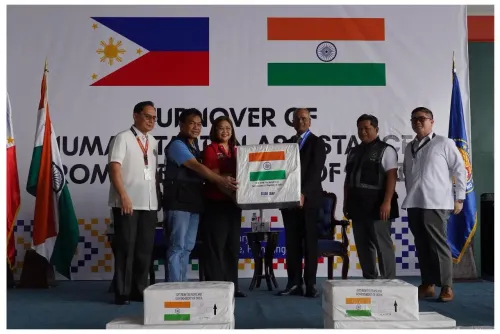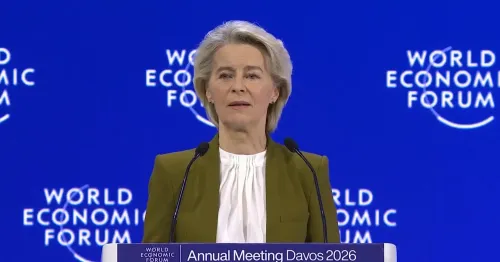Pakistan Targets Low-Income Afghans for Deportation While Wealthy Are Ignored, Say Keamari Camp Families

Synopsis
Key Takeaways
- Pakistani authorities are deporting low-income Afghans.
- Wealthy Afghans often evade arrest.
- Over 95% of detained Afghans are laborers.
- Many Afghan children in Karachi have never been to Afghanistan.
- Nationwide deportation campaign targets illegal Afghan nationals.
Karachi, April 19 (NationPress) Families of Afghan refugees residing in the Keamari camp, situated in Karachi, Pakistan's bustling economic center, have reported that authorities are focusing on deporting low-income Afghan individuals while neglecting the affluent.
“We and our relatives belong to the poor segment of society, relying on daily wages to provide for our children. Authorities apprehended them while working near Sohrab Goth, and they didn’t even have money for food at that time. The police avoid detaining wealthy Afghan nationals or those who own businesses, opting instead to arrest impoverished individuals simply to meet their deportation quotas,” stated Abdul Rehman alongside his relative Muhammad Khan from the Keamari camp.
The Keamari camp, which was established to house Afghan families, currently shelters hundreds waiting for registration and subsequent transportation to the Pak-Afghan Torkham border for deportation back to Afghanistan.
Numerous families at the camp express grievances regarding the discrimination faced by low-income Afghan workers.
Statistics reveal that over 95 percent of detained Afghan nationals in Karachi are laborers employed at the vegetable market.
Human rights advocate Moniza Kakar indicated that the Pakistani government’s official mandate pertains only to the enforced repatriation of Afghans holding the Afghan Citizen Card (ACC).
“However, in Karachi, Afghans with various valid documents are also being detained and forcibly returned to Afghanistan. Most of these individuals are from poor backgrounds,” he noted.
Muhammad Tahir, an Afghan national who operates a hotel in the Sohar Goth region of Karachi, shared that he comes from a village in Kunduz province, Afghanistan, but his family sought refuge in Pakistan when he was just five years old.
“I have six children, three sons and three daughters, all of whom were born and raised in Karachi and have never even visited Afghanistan. How can they be compelled to live in a country they do not know?” he argued.
He emphasized that many Afghan Pashtuns in Karachi have intermarried with local Pashtun families, making it nearly impossible for them to leave their spouses and families behind to return to Afghanistan.
Pakistan has initiated a nationwide deportation effort targeting illegal Afghan nationals and holders of the Afghan Citizen Card (ACC) after the voluntary repatriation deadline expired on March 31.










